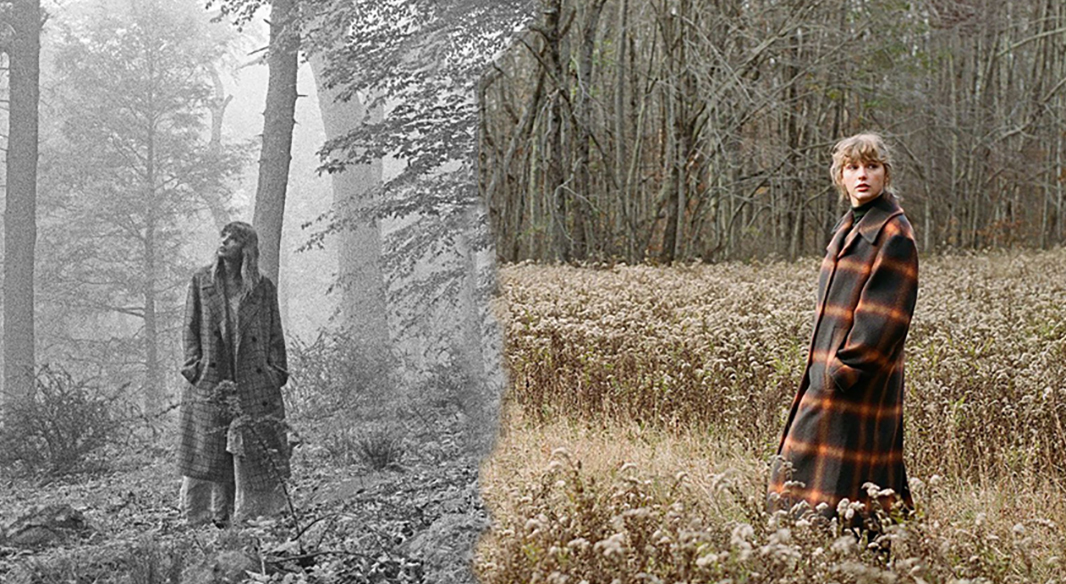Folklore
Though any personal favourite Taylor Swift album is valid—I will always be attached to Red, for instance—no one can deny that, objectively, her best is Folklore.
Folklore was the saviour of 2020. What makes it so remarkable is that it exists becauseof 2020, not in spite of it—Swift clearly thrived in isolation, and it comes through in the album. The pandemic allowed her to surrender her title as pop queen and stop hiding behind suffocating heaps of production. You can actually hear her voice this time around, and you can hear her words.
Storytelling is, I think, what made Swift famous—her ability to create a world with lyrics is unlike any other’s. Folklore is a testament to this ability, as each song seems to have multiple levels of meaning. It also brought us the beloved trio of high school love stories—“Cardigan,” “August,” and “Betty”—that tell a complex, heartbreaking tale that reads like a novel. Each song is connected by a lyric or recurring image, making Folklore a deliberate, literary album. Every song belongs; Swift weaved an invisible string (get it?) through them all.
Above all, Folklore is iconic because it ushered in the best Swift era yet. Yes, Evermore may be just as good, but it wouldn’t be possible without Folklore. Folklore brought us a new style and a new approach to storytelling, not to mention a genius new writing trio: Swift, Jack Antonoff, and Aaron Dessner. Folklore redefined Swift’s work, paving the way for what I hope will be countless more albums of its calibre.
Plus, there’s the pun in “The Lakes.” I mean, “tell me what are my Wordsworth?” C’mon. You can’t deny her genius.
—Julia Harmsworth, Assistant News Editor
Evermore
While its release may have been a complete shock, what was anything but surprising was the sheer talent imbued in the lyrical bones of Taylor Swift’s ninth official studio album, Evermore.
The deluxe version of the album includes 17 songs similar in melody and theme to the preluding album, Folklore, but what distinguishes it as the best record of Swift’s career is more than just the elaborate stories she paints with her lyrics: the album is cohesive and complements her newest era of music with distinction and elegance.
In previous albums, Swift has been raw and unapologetic in her compositions. Whether she is singing about a break-up, her reputation, misogyny, or politics, she holds nothing back. Within the era of Folklore, however, Swift proved her storytelling capabilities were just as enticing through the introduction of new, invented characters and perspectives. Evermore is the epic convergence of Swift’s classic confessional songwriting tendencies with new, brilliant fiction. It’s a perfect balance between escapism and revelation that entices listeners to experience a catharsis of heartbreak, healing, and hope.
The album spans heart-wrenching ballads of heartbreak like “Champagne Problems” and nods to her country roots with “Cowboy Like Me.” The title track, “Evermore,” embodies the uncertain times the world faces today.
Swift’s lyrics are the elements that cement Evermore as superlative. Lines such as “she would have made such a lovely bride, what a shame she’s fucked in the head” and “my house of stone, your ivy grows, and now I’m covered in you” reaffirm her status as a lyrical genius. Swift has compiled an album that is a pinnacle in her career and gives listeners only the best of her musical capabilities.
The only album that could potentially surpass Evermore in quality is the rumoured third sister album that I am desperately hoping is real. Until its release, Evermore will be on repeat for evermore.
—Emily Clare, Staff Writer
Tags
Column, point/counterpoint, Taylor Swift
All final editorial decisions are made by the Editor(s)-in-Chief and/or the Managing Editor. Authors should not be contacted, targeted, or harassed under any circumstances. If you have any grievances with this article, please direct your comments to journal_editors@ams.queensu.ca.

